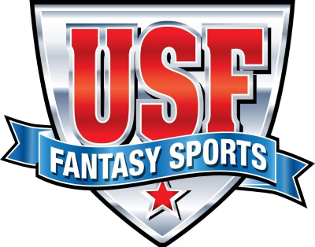Colorado, Nevada Home to Unique DFS Offering
The focus of daily fantasy sports (DFS) over the past year has been on DraftKings and FanDuel, and for good reason. They are the two giants of the industry, and if their merger goes through in 2017, there will be one company owning 90-plus percent of the market. As far as geography goes, New York has been the center of attention because of a recently-settled legal battle between the state Attorney General and both DraftKings and FanDuel. Overlooked in all this is a small site called USFantasy Sports that is offering a different kind of DFS and growing in, of all places, Colorado.
In the daily fantasy we are all used to, participants construct a team of athletes whose site-determined salaries fit under a prescribed salary cap. Points are assigned for various in-game statistics like touchdowns and yards and the customers with the top-scoring teams win money. Like poker, it’s easy to learn and difficult to master. I, personally, enjoy playing daily fantasy, though I am not particularly good at it.
 USFantasy does it differently. It uses a pari-mutuel wagering system. Rather than building a team of athletes under a salary cap structure, customers just wager on individual players or, in some cases, an actual, real-life team. Betting odds are assigned to each player at a position and results are based on fantasy scoring. It’s basically like placing prop bets, but using fantasy scoring, rather than “real life” scoring.
USFantasy does it differently. It uses a pari-mutuel wagering system. Rather than building a team of athletes under a salary cap structure, customers just wager on individual players or, in some cases, an actual, real-life team. Betting odds are assigned to each player at a position and results are based on fantasy scoring. It’s basically like placing prop bets, but using fantasy scoring, rather than “real life” scoring.
For example, in this week’s NFL contests, odds have been posted for each quarterback to score the most fantasy points at their position. Drew Brees and Russell Wilson have opened as the favorites at 6/1, followed by Matthew Stafford at 9/1, and so on down the line. Customers can engage in a variety of wagers, including Win, Place, or Show, exactas, trifectas, and the like. Odds can change based on how much money is being put down on the different players. Really, it all works very much like a sportsbook would in Nevada, except that a) the actual results of games are not being bet on, and b) it is fantasy scoring that determines the winners.
USFantasy’s headliner contest is the Million $ Seven. In it, contestants try to choose the top fantasy scoring player from seven different contests: two quarterbacks, two running backs, and three wide receivers. Each contest has twelve to fourteen athletes from which to choose. If someone is able to pick the winner from each of the seven contests, that person will turn a one-dollar wager into $1 million.
Colorado officially legalized DFS in June and USFantasy got up and running about a month ago. Nevada is the only other state that allows pari-mutuel style daily fantasy sports.
Interestingly, unlike with “traditional” daily fantasy, which is played online, USFantasy wagers can only be made live at participating sportsbooks. When USFantasy started last month in Colorado, there were only four locations in the state at which one could play their games. Now there are nine:
Big D’s OTB at Whiskey River – Garden City
El Patrón Sports Bar – Denver
Havana Park – Aurora
Post Time – Colorado Springs
Red & Jerry’s – Sheridan
Softball Country – Denver
Southern Colorado Gaming and Event Center – Pueblo
Sundance Steak House and Saloon – Fort Collins
The 8 Track at Bank 8 Billiards – Grand Junction
There are over 50 USFantasy participating locations in Nevada, 41 of which are in Las Vegas. Pick a Vegas casino and you will probably find one where you can play. Notable exceptions include the Venetian and Binion’s.
USFantasy has been slow to grow, but management is just fine with that. In fact, it is purposeful. USFantasy has only gone into markets – again, just Colorado and Nevada right now – in which pari-mutuel daily fantasy sports is explicitly legal. There is no desire to have the legal problems sites like DraftKings and FanDuel have had. Remember, those two sites – as well as other, smaller companies – accepted players from around the United States without DFS being explicitly legal, banking on the notion that either they wouldn’t be bothered or that state legislatures would legalize it. This is almost akin to the old saying, “It’s better to beg for forgiveness than ask for permission.”
This is essentially what online poker businesses did ten to twenty years ago. (Yes, the first real-money poker room, Planet Poker, opened nearly two decades ago.) Online poker wasn’t explicitly legal, but neither was it outright illegal. Thus, online poker rooms accepted U.S. customers, raked in the, well, rake, and the gold rush was on. But as we know, as the legal fist of the U.S. government came crashing down, so did the online poker industry in the States.



















COMMENTS